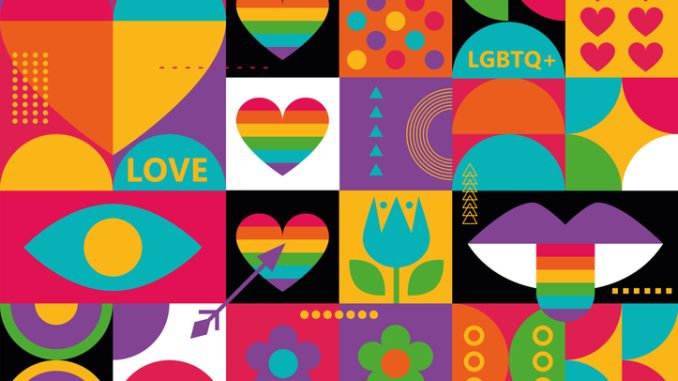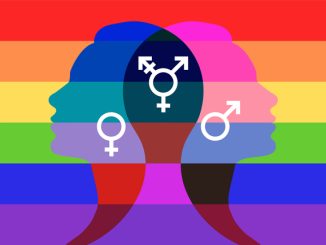
Practice managers play a vital role in ensuring that healthcare facilities are inclusive and supportive environments for LGBTQ+ individuals, making it crucial for them to be aware of the challenges and to advocate for improvements in care delivery. It’s increasingly apparent that LGBTQ+ individuals need enhanced healthcare, while healthcare providers require adequate support to meet these needs effectively. Despite advancements in LGBTQ+ rights and healthcare, there remains significant room for improvement, as highlighted in this article by medical student Jessica Cox
CREDIT: This is an edited version of an article that originally appeared on BMA
As a queer medical student in 2024, I know LGBTQ+ patients need better care, and LGBTQ+ (and other!) doctors need to feel supported to provide that care. While healthcare has improved for LGBTQ+ patients in recent decades, I know from research as well as personal experience that there is still much work to be done.
This is especially true for trans people in a politicised context in the UK, where basic healthcare is constantly under debate. Far from being a fringe issue, active inclusion is a necessity.
Improving healthcare for LGBTQ+ patients
People self-identifying as LGBTQ+ have always existed and make up a significant proportion of the population – 3.2% according to the 2021 census – and by the time I am practising, this likely will have increased further.
LGBTQ+ people have the same health needs as the general population – chest infections, heart problems – as well as needs more specific to their identities such as sexual health, IVF, and mental health needs. As they age, they need care that does not further exoticise or alienate them in hospital wards and care homes.
Affirming and inclusive care is essential; we know that healthcare discrimination is a contributor to the poorer health outcomes experienced by LGBTQ+ people. I am alarmed to look around me and see a world in which the very recently won legal gains around LGBTQ+ rights are being overturned.
With many close friends who are trans, I see waiting lists for the NHS Gender Identity Clinic (GIC) that are dangerous in length, with delayed care being linked to suicides. While the NHS itself says waiting times for the GIC are 18 weeks, and patients waiting longer must be offered an alternative, in actuality a patient referred to a London GIC today will have to wait five years, or 280 weeks. These timelines mean people wishing to receive care would have to pay for it, going against everything the NHS stands for.
There are also frequent reports that GPs, the gatekeepers to this service, do not have the capacity or training necessary to provide referrals, interim hormone prescriptions, mental health care, or even standard care in the interim that is inclusive of trans patients. All of this adds to a picture in which trans and non-binary people receive poor healthcare due to a lack of resources and education.
Supporting LGBTQ+ doctors
LGBTQ+ doctors have told me that 20 years ago, while it was possible to graduate and have a successful career, this success required a mutual agreement of silence. You just didn’t talk about who you were outside of work if you wanted to get ahead.
Sadly, the perception that it is unprofessional to be LGBTQ+ at work persists today. According to the BMA survey on sexual orientation and gender identity in the medical profession, under half (46%) of lesbian, gay, bisexual and queer respondents said they were open about their sexual orientation with everyone where they work or study. Just over a third (34%) of trans respondents said they were open about their gender identity with everyone in their place of work or study.
The survey also revealed that LGBTQ+ doctors continue to experience high rates of discrimination and harassment, both from patients and from their colleagues.
Queering medicine for the benefit of all
Medical knowledge – historically the preserve of wealthy white men – has been used to define people in a world shaped by power dynamics. As a queer person, for example, it’s impossible to forget that my orientation was until recently in the Diagnostic and Statistical Manual of Mental Disorders as a psychiatric disease. LGBTQ+ people do experience poorer mental health outcomes, but we’re now more likely to attribute that to discrimination and poverty than to an essential property of being queer.
We also know those with non-normative gender roles are not necessarily queer. For example, the ‘need for a father’ to qualify for IVF was updated to the ‘need for supportive parenting’ in 2008 – something which clearly impacted both single women and cisgender lesbian couples. Medicine needs to understand that health is influenced by myriad factors, and social analysis is needed to see the whole picture.
Cox’s perspective sheds light on the ongoing challenges faced by LGBTQ+ individuals within the healthcare system and underscores the importance of fostering inclusivity and support for both patients and professionals. By acknowledging and addressing these disparities, the medical community can work towards a more equitable and affirming healthcare environment for all individuals, regardless of their sexual orientation or gender identity.


Be the first to comment